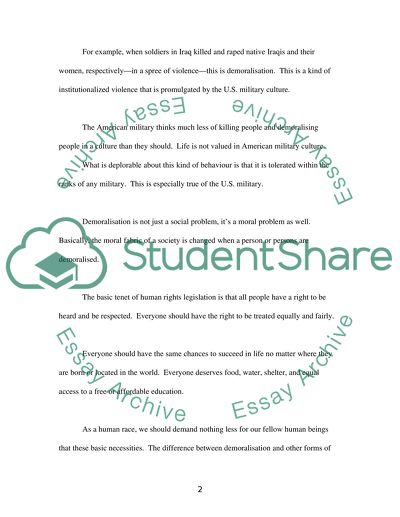Cite this document
(“What Is Demoralization and How It Is Related To Society and People Essay”, n.d.)
Retrieved from https://studentshare.org/sociology/1530800-demoralisation
Retrieved from https://studentshare.org/sociology/1530800-demoralisation
(What Is Demoralization and How It Is Related To Society and People Essay)
https://studentshare.org/sociology/1530800-demoralisation.
https://studentshare.org/sociology/1530800-demoralisation.
“What Is Demoralization and How It Is Related To Society and People Essay”, n.d. https://studentshare.org/sociology/1530800-demoralisation.


